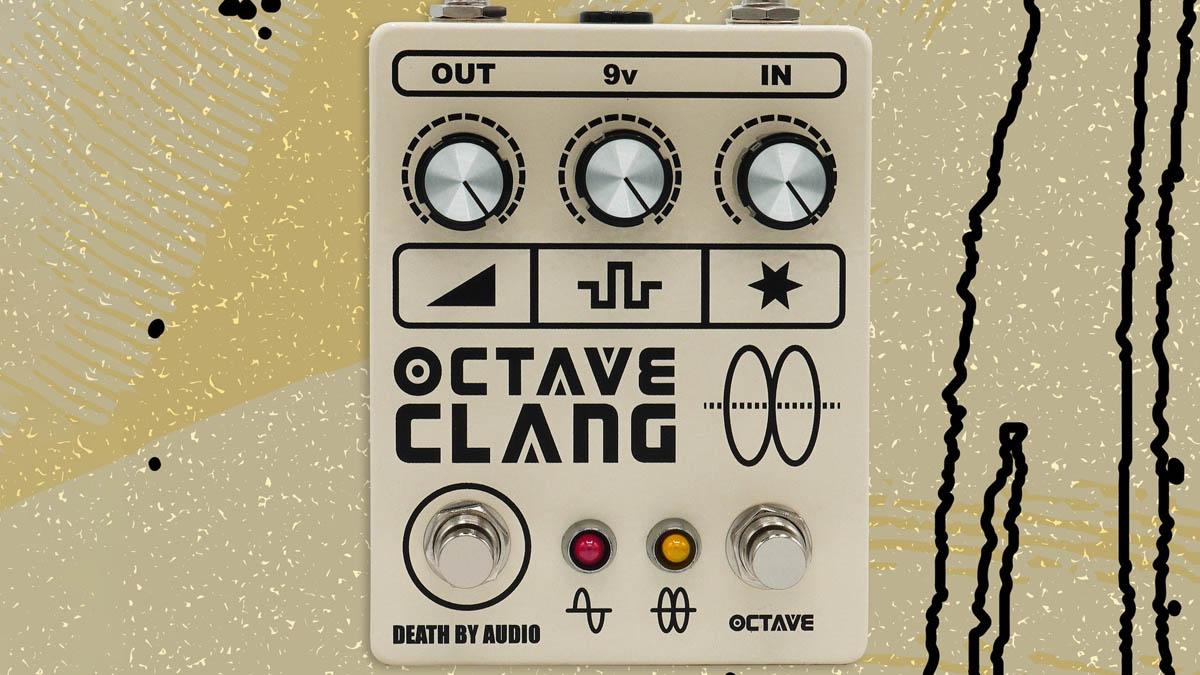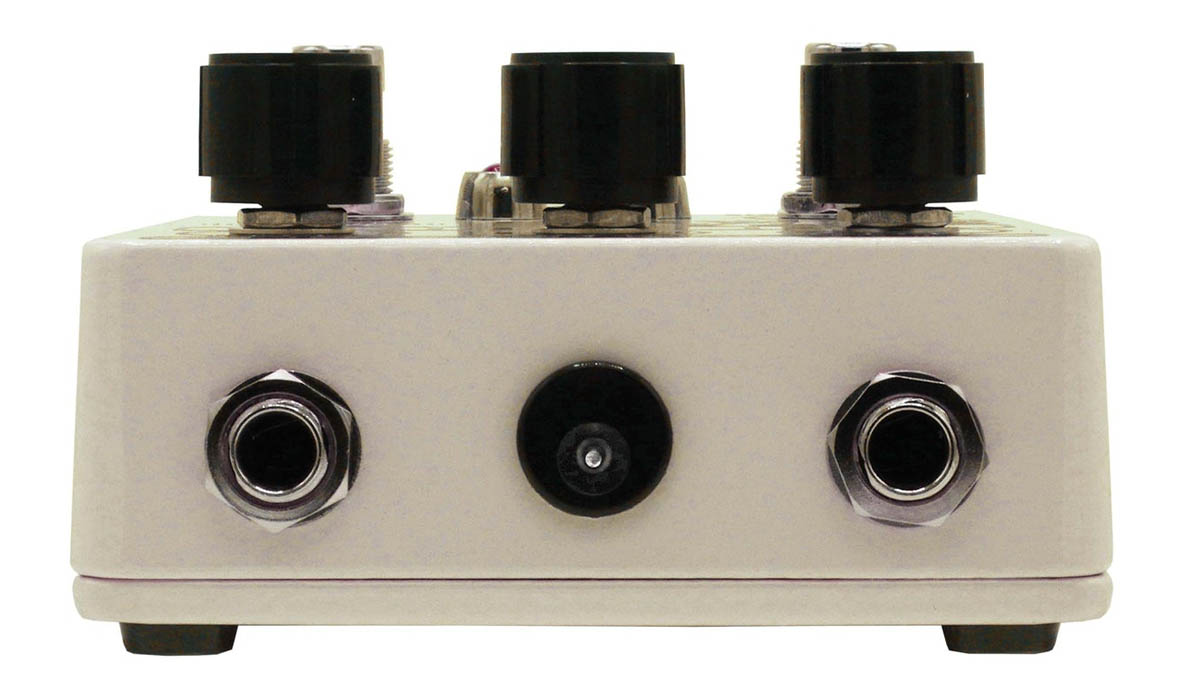Death By Audio resurrects the Octave Clang, with the new and improved V2 offering “discordant ringing drones, visceral octave scrapes, and ground-shaking distortion”
The gnarly octave fuzz that's found its way onto the pedalboards of Kevin Shields and Joanne Shaw Taylor now comes a footswitchable octave and a “supercharged” circuit…

After a decade in the wilderness, Death By Audio has brought the Octave Clang back, complete with a revised circuit and a refreshed enclosure that now offers an independent footswitch for its octave-up effect.
You could call the Octave Clang V2 an octave fuzz pedal. It can do that job. But as per the signature style of the New York-based guitar effects pedal company this is no ordinary octave fuzz.
The Octave Clang is built for creating some really extreme electric guitar sounds, with its gain dial packing a whopping +39dB, which in turn adds no shortage of drive and fuzz to the rest of the signal. And there is plenty of weirdness behind those dials. The noise artist who needs drones, discordance and lots of them will want for nothing here.
But that said, there’s enough range on this pedal to make it deceptively usable. The original version was used on occasion by My Bloody Valentine’s Kevin Shields and blues guitar phenom Joanne Shaw Taylor, and their styles could scarcely be more different.

Death By Audio says it has been working on this second coming for some time. “Long presumed extinct, the OC was never really gone,” it says, “merely in a state of hibernation – evolving, refining, and enhancing its already extraordinary sound.
“In the decade since it disappeared, we revisited the original Clang circuit, sculpting it into something better – a more ferocious, menacing, and thunderous force that is as usable as possible for today's musicians.”
The control setup is simple. You’ve got three dials. Volume sets the overall output level, and can be used to drive your guitar amp once you go beyond unity gain. As mentioned above, Gain is where the firepower is, while Tone where things get quite interesting.
Want all the hottest music and gear news, reviews, deals, features and more, direct to your inbox? Sign up here.
A pre-gain tilt EQ, the Tone dial shapes the character and sound of the octave and fuzz. Set to overload the low-end and you’ll get “a larger, more blown-out sound”, while overloading the high-end will give you more cut, and more articulation.

Simply step on the Bypass footswitch to engage the effect, and on the Octave footswitch to bring the octave up into play. There is also an internal bias adjustment if you are feeling adventurous enough to remove the backplate. It offers another opportunity to alter the character of the drive. By all means, make it even more uncompromising and harsh.
The Octave Clang V2 takes 9v from a pedalboard power supply, or battery, and draws 10mA. You’ll find the connections on the top of the unit.
Priced $225, it is made in NYC, and is available for preorder now, shipping 14 March. For more details, head over to Death By Audio.
Jonathan Horsley has been writing about guitars and guitar culture since 2005, playing them since 1990, and regularly contributes to MusicRadar, Total Guitar and Guitar World. He uses Jazz III nylon picks, 10s during the week, 9s at the weekend, and shamefully still struggles with rhythm figure one of Van Halen’s Panama.

